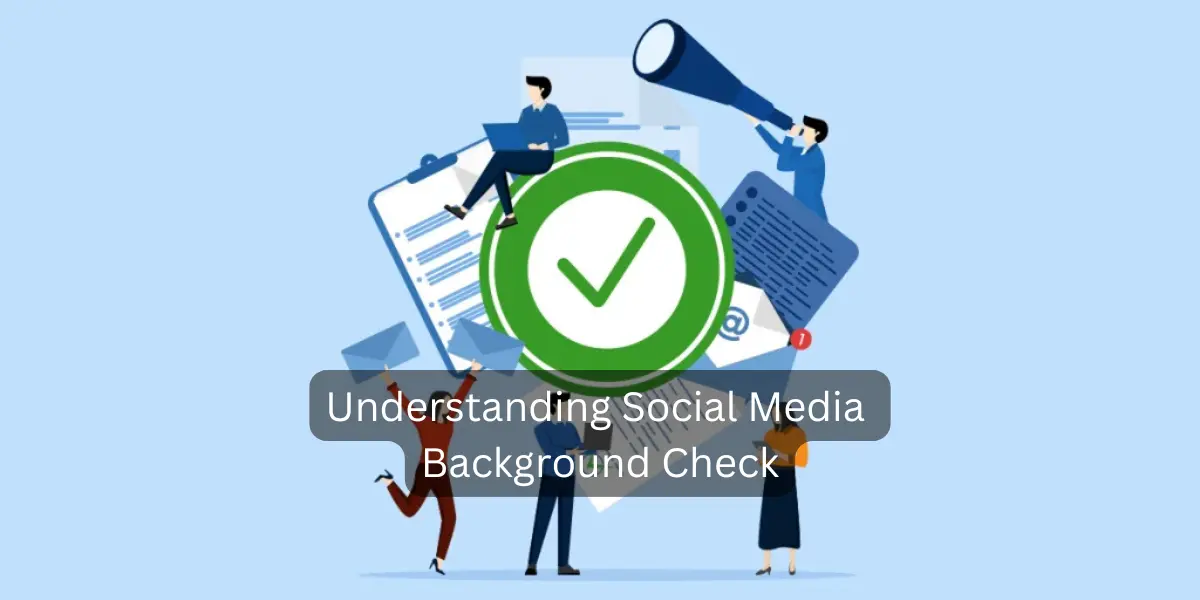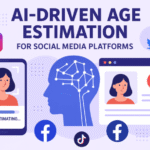
Understanding Social Media Background Check: Benefits & Best Practices
What is a Social Media Background Check?
A social media background check refers to the screening of candidates’ social media activities before recruiting them. This, along with the use of cloud recruiting software, lets employers know more about the candidate’s interests, personality, and behavior towards others. The goal of a social media background check is for employers to know if the given candidate is suitable for the job or not, and whether they align with the company’s values or not.
This way, the company can avoid hiring red flags and prevent damaging the reputation of the company. However, it is very important to respect the privacy of the candidate and not make any unfair judgements based on sexual orientation, age, race, pregnancy etc.
Where are Social Media Background Checks Used
Social Media Background Checks are not only used while hiring a candidate, but various other situations as well. Following are the areas it can be used for:
- College Admissions
- Tenant Screening (done by landlords)
- Legal Cases (done by lawyers to get evidence)
- Adoption Agencies
- Loan Approvals
- Online Dating (Some online dating apps may run a background check to avoid any frauds)
- Insurance Companies
Why is it important to run a Social Media Background Check
Running a Social Media Background Check helps various organizations i.e. companies, insurance agencies, banks, educational institutes etc. make smart decisions. Other reasons are listed below:
- Enhanced Security: Knowing someone on social media can let you know the kind of content they post. This could include violent and offensive posts, racial slurs etc. It lets you know about the kind of red flags they may bring to the company if you hire them.
- Helps Companies Protect Their Reputation: Social media background checks help prevent damage to the reputation of landlords, companies, educational institutions etc. They have to make sure that nobody brings negative attention or harms their image.
- Finding the Right Candidate: Companies or colleges might look for someone with similar culture or values as themselves so they fit right in. Similarly, landlords might look for a tenant who wouldn’t cause any fights in the neighborhood, or make too much noise. All these things help the person doing the check find out whether the candidate, student or tenant is the right fit or not.
- Understanding of the Candidate’s Character: Social media presence of a person and the content they share and post tells us about behavioral patterns. This might tell us about how responsible and reliable a person can be and how respectful they are to others. It tells us if they are accepting in nature and can do well in group settings and teamwork or not.
- Fraud Detection: Insurance companies and landlords might use social media background checks to stay away from fraudulent candidates. Lawyers can also avoid potential risks and comprehend a better understanding of any new clients.
- Helpful in finding Evidence: Lawyers can find evidence with these background checks for their legal cases. This is important in case of custody lawsuits where the character of a parent can be determined with these background checks and suspicious activities of the competitor can be spotted.
Popular Tools You Can Check Social Media Background
Companies, educational institutions, landlords and other organizations can use the following tools for a Social Media Background Check of their target candidate:
- Fama
- Social Intelligence
- Good Egg
- HireRight
- Sterling
- XOPA – AI
- Spokeo
- Instant Checkmate
- TruthFinder
- Pipl
None of the tools mentioned above are either a mobile or a desktop application. They are all cloud based platforms used for social media background checks. You can access them through a web browser.
Reasons for which you cannot disqualify a candidate
There are various reasons for which the hiring company or manager, or the landlord, or the educational institution can not reject a candidate. These reasons can be legal or ethical. Disqualifying someone against these legal and ethical reasons can lead to discrimination and the authority that is rejecting them might have to face legal issues.
Following are the criterias based on which you cannot disqualify a candidate:
- Race, religion, caste, cultural background, ethnicity or nationality.
- Age, sex or sexual orientation and choices of a candidate.
- You cannot reject someone based on their political views and preferences i.e. you cannot expect all employees of a company to believe in a particular party or concept. You can also not expect them not to like a certain party or political concept.
- If a candidate has a disability or health issues.
- Personal and lifestyle choices outside of work, as long as these choices are legal.
Conclusion
In conclusion, these background checks are helpful to employers and other institutions by providing insights on the character of the candidate and whether they will be a right fit. However, they should be conducted carefully keeping in mind the privacy of the candidate and legal and ethical reasons.
The hiring process should respect a candidate’s personal identity and beliefs, and should only focus on what is related to the job. This means it should focus on skills, qualifications and nature of the employee, not their cultural preference, race, religion, gender or sexual orientation.




